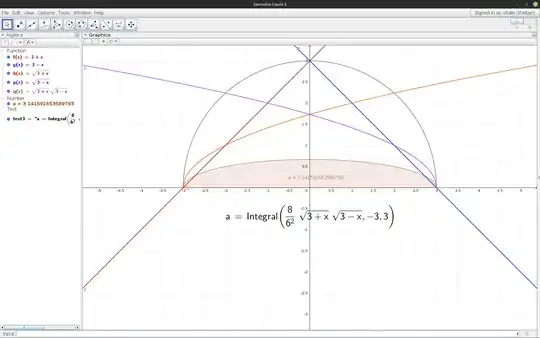This formula can be simplified?
$$ \pi \sim \frac{8}{n^2} \cdot \sum\limits_{i=0}^{n} \sqrt{i \cdot (n - i)} $$
I am trying to find an alternative formula for circle area.
I stacked to analyze this formula for a while without any progress.
This is not my home work.
I am asking here, because I know all the professional mathematician are here and maybe exist such theorem that I do not know yet and can help to move further with my research.
Thank You.
I tested convergence numerically with:
import math
p = 6
n = 10 ** p
sum_h = 0
for i in range(n+1):
h = (i * (n - i)) ** (1/2)
sum_h = sum_h + h
pi0 = 8 * sum_h / n / n
print(" ", math.pi)
print("~", pi0)
3.141592653589793
~ 3.141592650263593
Here is what I know.
Preview integral example.
We are so close!




